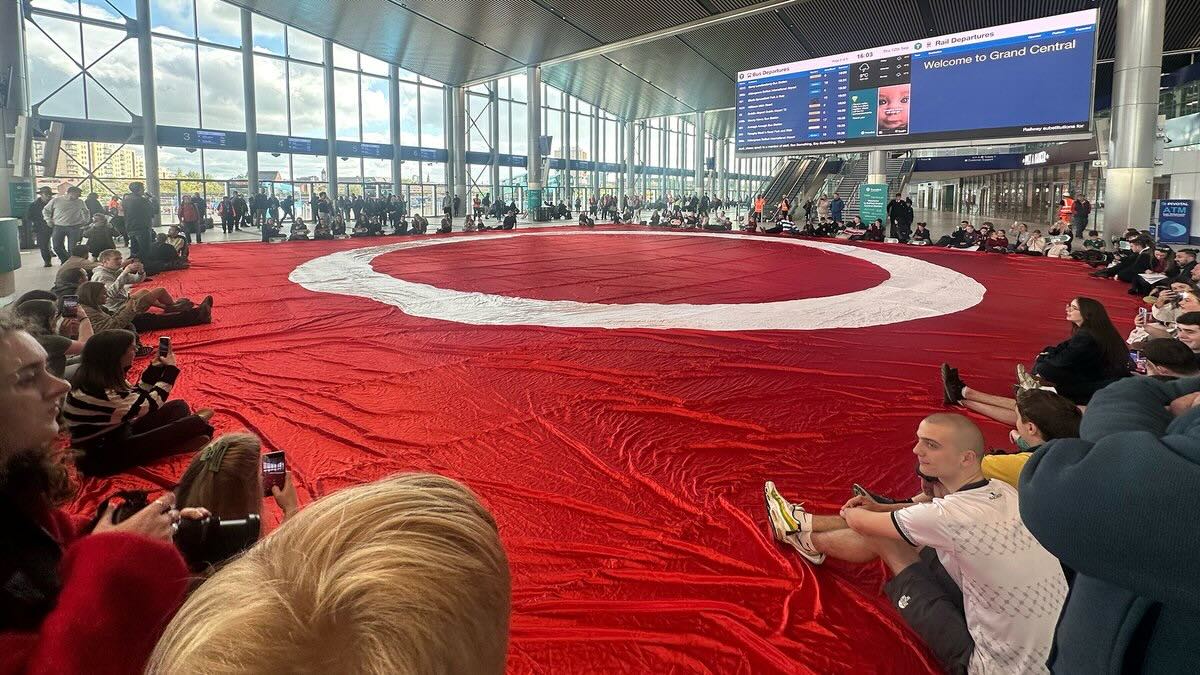
Relationships between the nationalist community and the British government are at their lowest in years after a ‘blitzkrieg’ of backsliding by London on promises to tackle inequality in the north of Ireland.
The mood within the Gaelic sports association in particular is at its worst in years after the Labour government on Friday reneged on a promise to fund the redevelopment of the Casement stadium in west Belfast in time for the Euro 2028 football tournament.
British officials claimed the estimated cost had doubled, a claim which the GAA rejected.
“The Ulster GAA and all of us have lost out,” said GAA president Jarlath Burns. “Really wasted a full year because of this pantomime we’ve had.”
Managing the most popular participation sporting codes in the north of Ireland, the GAA (Gaelic Athletics Association) remains under political and paramilitary attack by unionists.
Despite three decades passing since the ceasefire announcements, one club in east Belfast has been serially targeted by loyalists, including a further three bomb hoaxes this week alone.
The announcement came in an extraordinary and infuriating “dump” of bad news, alongside the refusal of an inquest into the 1997 murder of GAA official Sean Brown, and the announcement of the suspension of long-promised ‘City Deal’ plans to invest in the Derry, Belfast, Newry and the Glens of Antrim regions.
The anger within the nationalist community was palpable.
“They’ve enough money for war materials and weapons...this is a choice the British government has made,” said Sinn Féin Assembly member Pat Sheehan.
He said it was “disgraceful” that the British put out their announcement about Casement Park on Friday night in an attempt to bury the story.
The party has insisted that the stadium “will be built” regardless, and called on the British to specify how much it will pledge to that development.
Sinn Féin Vice President Michelle O’Neill described the new stadium at Casement is “an Executive commitment, and something that both the British and Irish governments have committed to.”
“The decision not to proceed with Casement Park in time to host UEFA Euro 2028 is deeply disappointing and a missed opportunity not only for local sport, but for our economy.
“This was a unique opportunity to create jobs, boost tourism, and showcase our island’s sporting talent on the global stage.
“We will continue to work with the GAA, our local executive and the two governments to push this project forward and get these state-of-the-art facilities built and a first-class stadium for Gaelic games delivered.
“To make this announcement on the same day as pausing funding for the transformational City and Growth Deal for our towns and cities smacks of cynicism from the British Secretary of State.”
Meanwhile, Irish language activists have been protesting over indications that the British government intends on reneging on the Irish Language Act, including the failure thus far to appoint an Irish language commissioner. The legislation was passed by the outgoing Tory government in 2022 after decades of campaigning by Irish speakers.
A protest (pictured) took place at Belfast Grand Central after the new combined transport hub for the city was unveiled without a single dual-language sign.
Members of the Irish language community, local groups and schools staged a protest, calling upon Infrastructure Minister John O’Dowd to direct Translink to install dual language signs in the station.
The protest included unveiling a large Dream Dearg banner across the floor of the new station.
Eoghan Ó Gairmile, spokesperson for An Dream Dearg, said: “Translink have continuously deflected and ignored their obligations in providing dual-language provision. First of all they told us they couldn’t do anything without direction from a Minister, then when the Minister advised them to go ahead, they told us they couldn’t do so without an Irish language commissioner,” he said.
“Translink should not have a veto to exclude the rights of an entire section of this community. The Minister must now intervene and ensure this multi-million monolingual monolith is transformed into an all-island beacon of equality based on mutual respect for both the Irish language and the English language, side by side.”
![[Irish Republican News]](https://republican-news.org/graphics/title_gifs/rn.gif)
![[Irish Republican News]](https://republican-news.org/graphics/title_gifs/harp.gif)

